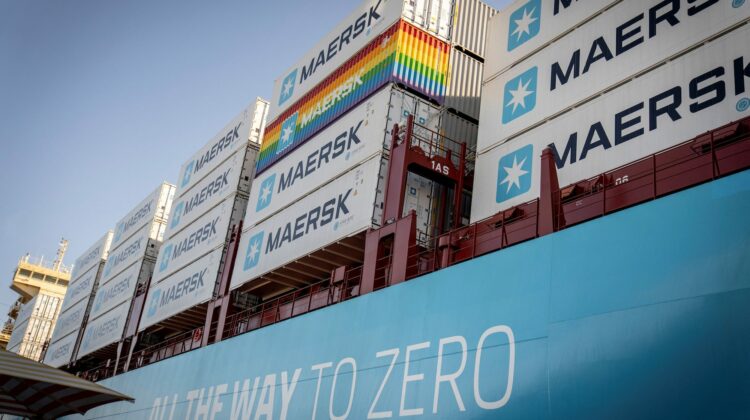
Maersk introduces Red Sea and Gulf of Aden surcharges amid escalating maritime risks
COPENHAGEN : Maersk, the world’s second-largest container carrier, announced new emergency surcharges linked to the evolving security situation in the Red Sea and Gulf of Aden. The Danish shipping giant stated that the move comes as part of “measured operational adjustments” in response to widespread disruptions impacting global container transport.
According to the company’s official statement, the persistent instability in the region continues to cause major logistical challenges, including vessel delays, port congestion, and equipment shortages across the industry. As a result, Maersk will implement updated emergency surcharges effective October 14–15, 2025.
The surcharges will apply to shipments from the Middle East and Gulf ports to Northern Europe at $1,600 per 20-foot dry container and $1,800 per 40-foot dry or reefer container. Similar rates will be levied on shipments from the Arabian Gulf to Mediterranean ports—$1,600 for 20-foot and $1,800 for 40-foot dry or refrigerated units. The company clarified that exports from the Far East to Asia are exempt from these additional charges.
The announcement follows heightened geopolitical tensions in the Red Sea and Gulf of Aden. A recent report by The Maritime Executive revealed that Houthi forces have deployed anti-ship cruise missiles in Yemen’s Al-Bayda province, expanding their reach to cover nearly all of the Gulf of Aden. The report cited the September 29 missile strike on the Dutch vessel MV Minervagracht as the Houthis’ first operational attack outside the Red Sea, resulting in injuries to two crew members before intervention by the EU’s ASPIDES naval mission.
The Houthis’ use of Iranian-developed “Mandeb-2” cruise missiles, derived from China’s C-802 system, marks a significant escalation in maritime threats. The group has also expanded its declared targets to include major Western energy companies such as ExxonMobil, Chevron, and ConocoPhillips, signaling a breakdown of the informal ceasefire brokered earlier this year.
Analysts warn that the militarization of southern Yemen poses a growing threat to one of the world’s most vital trade corridors linking the Suez Canal with the Indian Ocean. As attacks intensify, shipping lines—including Maersk—are reassessing routing strategies, vessel deployment, and risk premiums to safeguard crew, cargo, and global supply chains.
Source: Al Mal News

